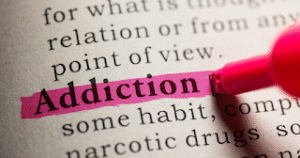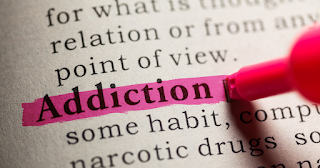Understanding Addiction Awareness Month: A Comprehensive Overview
Addiction Awareness Month, observed every September, is a pivotal period dedicated to raising awareness about addiction and providing crucial support for individuals affected by substance use disorders and behavioral addictions. This month serves as a beacon of hope and a call to action, highlighting the importance of education, advocacy, and community involvement in combating addiction and promoting recovery. This comprehensive article explores the significance of Addiction Awareness Month, its observance, and the role of various stakeholders in addressing addiction-related issues.

Addiction Awareness Month |
The Significance of Addiction Awareness Month
Addiction is a complex and multifaceted issue that affects millions of people worldwide. Whether it involves substance use disorders, such as alcoholism or drug addiction, or behavioral addictions like gambling or internet use, the impact on individuals, families, and communities is profound. Addiction Awareness Month provides an opportunity to shine a spotlight on this pressing issue, offering a platform for education, advocacy, and support.
Understanding Addiction
Addiction is characterized by a compulsive engagement in rewarding stimuli, despite adverse consequences. It often involves changes in brain chemistry and function, leading to an inability to control the consumption of substances or behaviors. This chronic condition can have severe repercussions on physical health, mental well-being, relationships, and overall quality of life.
Substance use disorders, including alcohol and drug addiction, are particularly prevalent. According to the National Institute on Drug Abuse (NIDA), millions of Americans suffer from substance use disorders, with a significant portion of those individuals experiencing co-occurring mental health disorders. Behavioral addictions, such as gambling or compulsive internet use, also pose significant challenges and contribute to the broader spectrum of addiction issues.
The Role of Addiction Awareness Month
Addiction Awareness Month plays a crucial role in addressing the stigma and misconceptions surrounding addiction. Historically, addiction has been misunderstood and often stigmatized, leading to discrimination and barriers to seeking help. By focusing on education and awareness, this month aims to foster a more compassionate and informed perspective on addiction.
The observance of Addiction Awareness Month involves a variety of activities, including public awareness campaigns, educational seminars, community events, and support group meetings. These initiatives are designed to inform the public about the nature of addiction, the available treatment options, and the importance of supporting individuals in recovery.
Observance of Addiction Awareness Month
Addiction Awareness Month is officially observed in September each year. This timing aligns with other mental health and substance abuse awareness campaigns, creating a concentrated effort to address these interconnected issues. The choice of September provides an opportunity to integrate addiction awareness into broader conversations about mental health, fostering a holistic approach to well-being.
Key Activities and Events
During Addiction Awareness Month, various activities and events take place to engage the community and promote understanding. Some common events include:
- Public Awareness Campaigns: These campaigns utilize various media platforms, including social media, television, and print, to spread messages about addiction and recovery. Campaigns often feature personal stories, educational content, and calls to action to encourage support and involvement.
- Educational Seminars and Workshops: Many organizations host seminars and workshops to provide information about addiction, its impact, and available treatment options. These events are aimed at educating both the general public and professionals in the field.
- Community Events and Fundraisers: Community events, such as walks, runs, and fundraisers, are organized to raise awareness and funds for addiction-related causes. These events often bring together individuals, families, and organizations to show solidarity and support.
- Support Group Meetings: Support groups for individuals in recovery and their families play a crucial role in Addiction Awareness Month. These meetings offer a space for sharing experiences, providing encouragement, and accessing resources.
The Color Red
The color red is associated with Addiction Awareness Month, symbolizing the urgency and passion involved in addressing addiction. The choice of red reflects the intensity of the issue and the commitment to creating change. During September, various organizations and communities use red in their promotional materials, events, and social media campaigns to draw attention to the cause and unite efforts.
The Broader Context of Addiction Awareness
While Addiction Awareness Month provides a focused period for raising awareness, it is essential to recognize that addiction is a year-round issue. The efforts during September are part of a broader, ongoing movement to address addiction comprehensively.
Ongoing Education and Advocacy
Education about addiction is crucial for understanding its complexities and promoting effective treatment. Various organizations, such as the Substance Abuse and Mental Health Services Administration (SAMHSA) and the National Council on Alcoholism and Drug Dependence (NCADD), offer valuable resources and information throughout the year. These organizations provide educational materials, support services, and advocacy efforts to address addiction and mental health issues.
Advocacy plays a vital role in influencing policies and improving access to treatment and support services. Advocates work to promote evidence-based practices, enhance funding for addiction treatment programs, and address systemic barriers to care. The work of advocacy groups helps to shape public policy and ensure that individuals struggling with addiction receive the support they need.
Community-Based Initiatives
Community-based initiatives are integral to addressing addiction at the local level. Programs and services offered by community organizations, such as addiction treatment centers, support groups, and prevention programs, provide essential support to individuals and families affected by addiction. These initiatives often focus on reducing harm, promoting recovery, and building supportive networks within the community.
Personal stories of recovery and resilience also play a significant role in breaking down barriers and fostering understanding. Sharing experiences of overcoming addiction can inspire hope, challenge stigma, and encourage others to seek help. Recovery stories highlight the possibility of positive change and the importance of a supportive community.
Key Support and Advocacy Organizations
Several prominent organizations play a critical role in supporting addiction awareness and providing resources for individuals affected by addiction. These organizations offer educational materials, treatment resources, and advocacy efforts to address addiction-related issues. Here are some of the key institutions:
-
Substance Abuse and Mental Health Services Administration (SAMHSA)
- Website: SAMHSA
- Overview: SAMHSA is a government agency dedicated to improving the quality and availability of substance abuse prevention, addiction treatment, and mental health services. It provides resources, support, and information on various aspects of addiction and mental health.
-
National Institute on Drug Abuse (NIDA)
- Website: NIDA
- Overview: NIDA is a research institute that provides information on the science of drug abuse and addiction. It offers resources on the effects of drugs, treatment options, and research findings.
-
National Council on Alcoholism and Drug Dependence (NCADD)
- Website: NCADD
- Overview: NCADD works to educate the public about alcohol and drug dependence and provides resources for prevention, treatment, and recovery.
-
Addiction Recovery Resources (ARR)
- Website: ARR
- Overview: ARR provides a range of resources for individuals in recovery, including support groups, educational materials, and information on addiction treatment options.
-
Alcoholics Anonymous (AA)
- Website: AA
- Overview: AA is a fellowship of individuals who share their experiences with alcohol addiction and support each other in recovery through a structured program of meetings and support.
-
Narcotics Anonymous (NA)
- Website: NA
- Overview: NA is an organization that offers a fellowship for individuals recovering from drug addiction, providing meetings, support, and a structured program to aid in recovery.
-
Partnership to End Addiction
- Website: Partnership to End Addiction
- Overview: This organization focuses on helping families affected by addiction by providing resources, support, and advocacy to promote effective treatment and recovery.
The Impact of Addiction Awareness Month
The impact of Addiction Awareness Month extends beyond the month of September. By raising awareness and fostering understanding, this observance contributes to a more informed and compassionate society. The efforts made during this time help to:
- Reduce Stigma: Education and awareness initiatives work to challenge stereotypes and misconceptions about addiction. Reducing stigma encourages individuals to seek help and support without fear of judgment.
- Promote Early Intervention: Awareness campaigns emphasize the importance of early intervention and treatment. Recognizing the signs of addiction and seeking help promptly can improve outcomes and prevent the progression of the disorder.
- Enhance Access to Treatment: By advocating for better access to treatment and support services, Addiction Awareness Month contributes to improving the availability of care for individuals affected by addiction. Increased awareness can lead to increased funding and resources for treatment programs.
- Foster Community Support: Community involvement and support are critical for individuals in recovery. Addiction Awareness Month encourages communities to come together and provide a network of support for those affected by addiction.
Conclusion
Addiction Awareness Month serves as a vital platform for raising awareness, educating the public, and supporting individuals affected by addiction. Observed annually in September and represented by the color red, this month highlights the importance of addressing addiction and fostering recovery. By engaging in educational activities, advocacy efforts, and community support, we can work together to create a more informed and compassionate society. The impact of Addiction Awareness Month extends beyond September, contributing to ongoing efforts to address addiction and promote recovery throughout the year.
